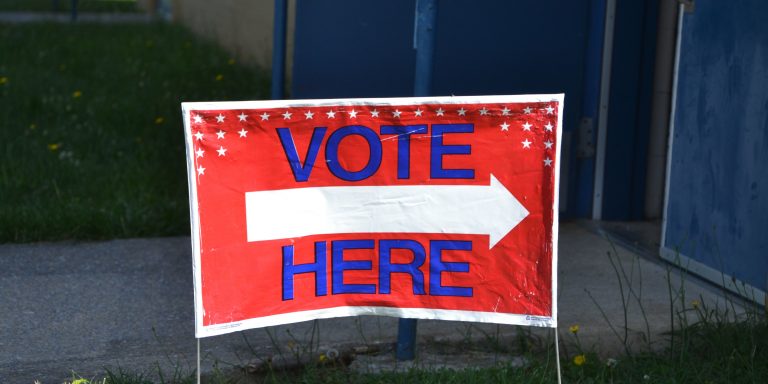INTELBRIEF
October 28, 2020
IntelBrief: Iran Interfering in U.S. Election

Bottom Line up Front
- The Iranian government is using cyber operations to try to deny President Trump re-election.
- Iran’s attempts to influence U.S. voters demonstrate a more sophisticated understanding of U.S. politics than Iran has previously displayed.
- Tehran’s leaders have decided against escalation in the Middle East, judging that doing so could increase U.S. support for President Trump.
- The U.S. election system itself is secure from Iran’s attacks, but the Trump administration’s responses to Iran’s meddling will not deter Iran from continuing them.
On October 21, Director of National Intelligence John Ratcliffe stated that U.S. intelligence had determined that Iran attempted to interfere in the November 2020 U.S. election by sending spoofed email messages to U.S. voters in several states. According to Ratcliffe, Iran, as well as Russia, had also succeeded in obtaining some publicly available U.S. voter registration information. The Iranian operation outlined by Ratcliffe consisted primarily of emails, purporting to emanate from a U.S. right-wing group, the Proud Boys, physically threatening the targeted voters unless they vote for President Trump. The Iranian cyber operation sought to trigger a political backlash against President Trump by associating his campaign with domestic fringe groups and voter intimidation efforts. The operation seemed to represent a level of sophistication in Tehran’s understanding of U.S politics that Iran has not previously demonstrated. In exposing the Iranian operations, U.S officials sought to reassure the public that U.S. intelligence could quickly uncover and thwart foreign election interference attempts, including by more capable cyber adversaries such as Russia. U.S. officials stressed that neither Iran nor Russia would be able to infiltrate U.S. election systems by altering voter rolls, votes cast, or vote tabulations.
Tehran’s intent in interfering in the U.S. vote is clear - to try to oust President Trump in order to relieve the effects of the Administration’s ‘maximum pressure’ campaign against Iran. In contrast to President Trump, former Vice President Joseph Biden has stated that, if elected, he will change Iran policy by seeking to re-enter the 2015 multilateral Iran nuclear deal that entailed significant easing of U.S. economic sanctions. Iran also seeks to avenge the Trump administration’s strike that killed IRGC-Qods Force commander Qasem Soleimani in January. Iran also shares the overall goals of Russia in seeking to sew political dissension inside the United States and weaken U.S. global influence, more generally.
Iran’s cyber interference in the U.S. election reflects a calculation by Tehran that alternative policies would not necessarily yield desired results. Many experts expected that Iran might conduct armed operations in the region designed to contradict President Trump’s assertions that his administration has improved stability and security in the region. Such actions could have included a repeat of Iran’s 2019 missile attack on Saudi oil installations and attacks on ships in the Persian Gulf, or attacks by Iranian allies and proxies such as the Iran-backed Houthis in Yemen or Iraqi Shia militias. However, a new escalation by Iran risks provoking a U.S. military response that might - contrary to Tehran’s wishes - cause the American public to rally around the incumbent. This prevailing assessment by Tehran appears to account for the relative quiescence of Iran’s forces and regional allies during in the past several months, although Iran’s allies in Iraq have kept up their steady stream of attacks on facilities that host U.S. forces. At the same time, Iran’s leaders have assessed that engaging the Administration in new nuclear negotiations would boost President Trump’s re-election prospects. Iran’s leaders have refused talks unless and until the Administration abandons its maximum pressure sanctions policy. Iran undoubtedly knows that President Trump would be unlikely to undertake such softening of his Iran policy because it is designed to appear as tough on Iran’s anti-U.S. regime as possible.
Although U.S. election systems are apparently secure, the U.S. responses to Tehran’ cyber operations are unlikely to force Iran to discontinue its efforts. On October 22, the Treasury Department sanctioned Iran’s Islamic Revolutionary Guard Corps (IRGC), the IRGC-Qods Force, and three Iranian institutes and media outlets for ‘us[ing] false narratives and other misleading content to attempt to influence U.S. elections.’ However, the penalties levied on these organizations involve blocking their U.S.-based assets and sanctioning foreign banks that conduct transactions with them. These Iranian organizations are not known to have any U.S. assets or to transact any business with U.S. firms or major international banks, rendering the U.S. penalties largely moot. The U.S. response demonstrates the limitations of relying on U.S. sanctions against Iran and will almost certainly fail to deter Tehran from continuing its efforts to foster President Trump’s defeat on November 3.